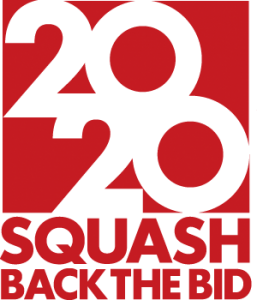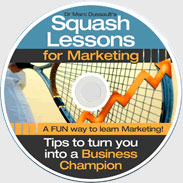When we left off in the previous blog post, Jeff and Harry were overheard in the squash club locker room. Just as Jeff and Harry were finishing their conversation, the door to the locker room bursts open and in walks David Frickin Goggins. David: Hold on, I thought I heard my name being thrown around […]
Archive for the 'Sports Psychology' Category
Jeff: Yo Harry, why you think you lost the match yesterday mate? Harry: I was feeling buggered mate, didn’t get much shut-eye last night. Jeff: Yeah, same here, I was pretty knackered too. But that ain’t no excuse, you know what the best players do? Harry: What’s that? Jeff: They practice deliberately, even when they’re […]
Not every little thing makes a BIG DIFFERENCE, but when you combine several of them, they ALL add up, EXPONENTIALLY/GEOMETRICALLY. The examples below are NOT related to each other. They’re provided as fantastic examples of how EXPERTS share their Detailed Distinctions for anyone interested in Deliberate Practice Principles. This is last example is the best […]
This is an honest, raw account of the psychological obstacles the very best have to overcome to reach the pinnacle of their sport. Whenever you’re faced with adversity, dig deep and back yourself. Are you a Sydney-based squash player? <– Click here to get on court and maybe even a few coaching sessions! Need a […]
Performing Under Pressure by Josephine Perry is a fantastic book for anyone who wants to understand or improve their mental toughness. While I was reading it as a coach and a high performance elite athlete, I thought what it missed was a summary to cross-reference the great advice, in an easy-to-use table format… So I […]
We’ve all heard the saying “Perfect Practice Makes Perfect“, but until recently, it wasn’t clear WHY it had such a powerful and long-lasting effect on our brains. All competitive athletes understand the concept of Muscle Memory, but the reality is it’s Mental Memory that creates the instantaneous and autonomic reflexes that make champions. This is […]
This 1-minute video conveys an important motivational mantra: “When you see your limits, you see your limits change”. That’s because you can’t change something you can’t see. Elite and High Performance athletes also know from Deliberate Practice Principles; you can’t improve something you don’t measure. Measurement in goal setting starts by being AWARE of the […]
If there is one thing ALL champions ‘do’ is New Year’s Resolutions, in one form or another. They know you either plan to fail or fail to plan. Champions also know the importance of self-motivation. When facing the new year ahead, Arnold’s video is my go-to source of inspiration and aspiration as I create my […]
We all need a boost of motivation from time to time. This ad is a great source of inspiration when you just want to reach deep down and push yourself just a bit further.




